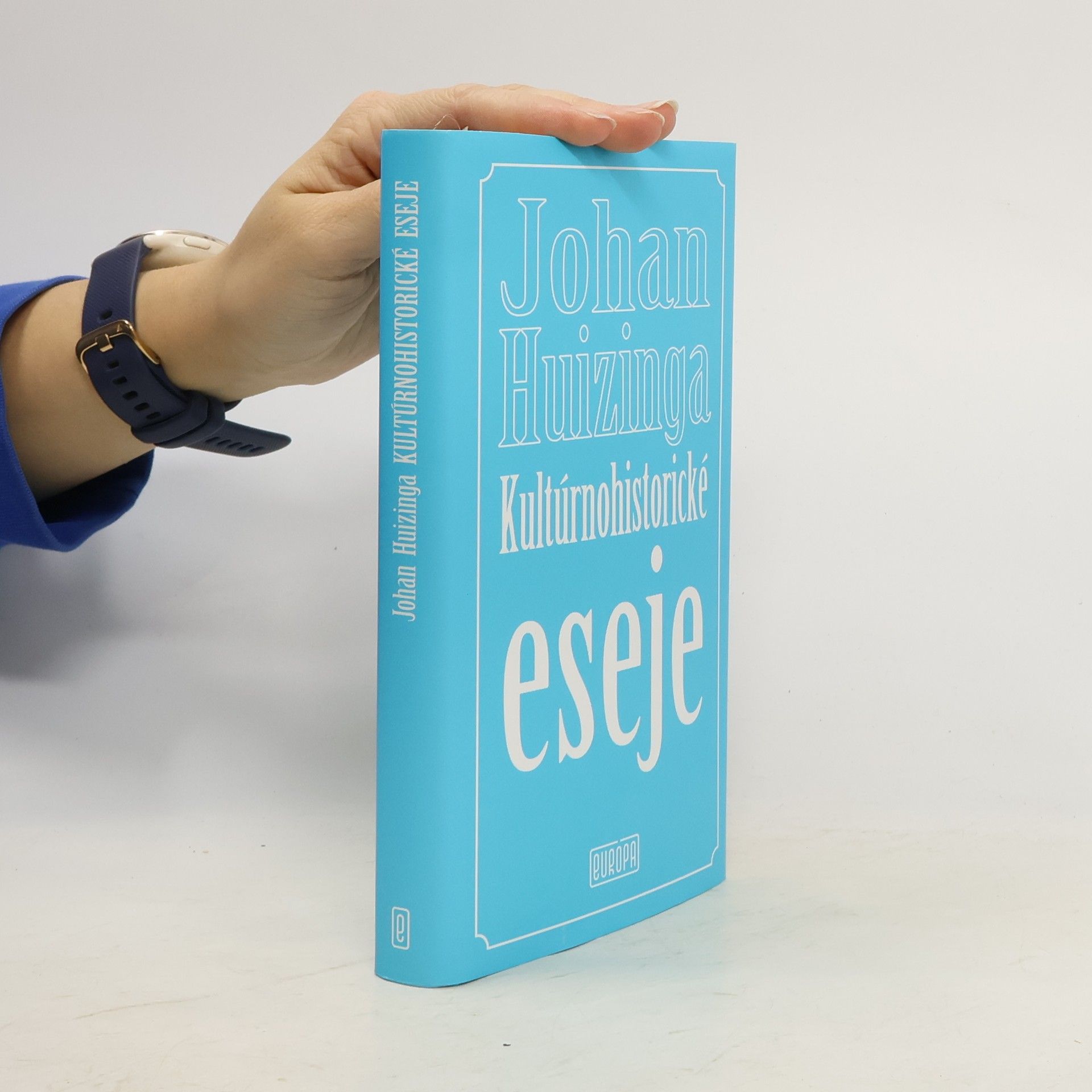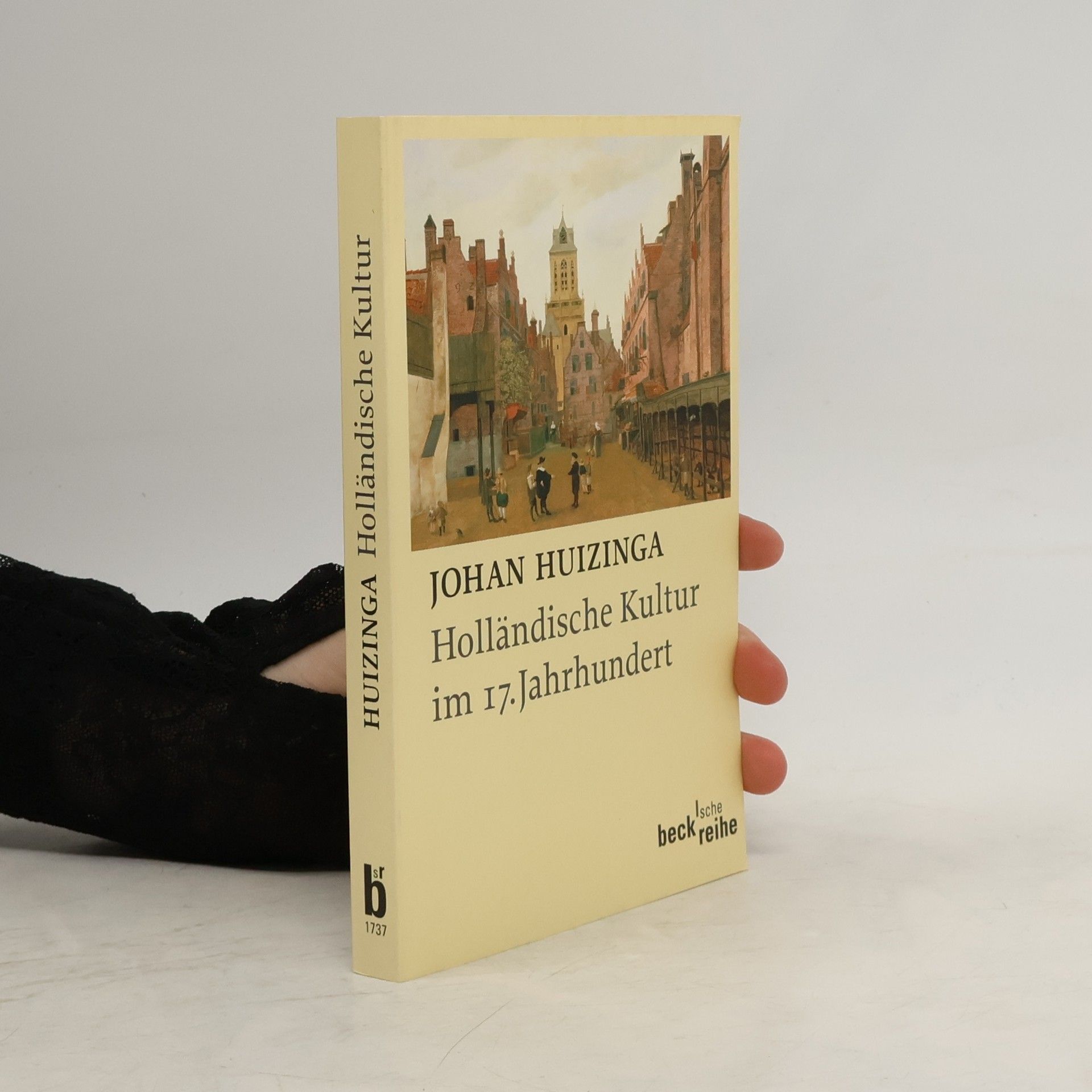Er is geen boek in de Nederlandse cultuurgeschiedenis dat zoveel opgang heeft gemaakt als Herfsttij der middeleeuwen . Het is vele malen vertaald en staat op de uitleenlijst van de bibliotheken nog steeds hoog genoteerd. Hersttij der middeleeuwen is een synthese van beeldende kunst en literaire bronnen, van de verstilde sfeer van de vlaaamse primitieven en de klacht om het bestaan in het werk van de comtemporaine dichters en schrijvers - dit alles gezien tegen de achtergrond van schitterende feesten in extra-vagante kledij en pompeuze praal. Erudiet en beeldend beschrijft Huizinga in de vlammende kleuren van de herfst de teloorgang van deze laat-middeleeuwse beschaving. Voor deze nieuwe uitgaven van Herfsttij der middeleeuwen is de tekst vergeleken met de laatste door Johan Huizinga zelf geredigeerde versie, waardoor op tal van punten correcties konden worden aangebracht en nadien ingeslopen fouten verbeterd. Daarnaast is deze uitgave verlucht met honderden afbeeldingen, grotendeels in kleur, van kunstwerken en manuscripten die in de tekst worden genoemd. Van Latijnse, Franse en Duitse citaten worden direct vertalingen gegeven. Een kaart van de Bourgondische Nederlanden, een tijdtafel, een stamboom van het Bourgondische vorstenhuis en een eveneens geïllustreerd nawoord maken deze uitgave van Herfsttij der middeleeuwen werkelijk compleet.
Johan Huizinga Boeken


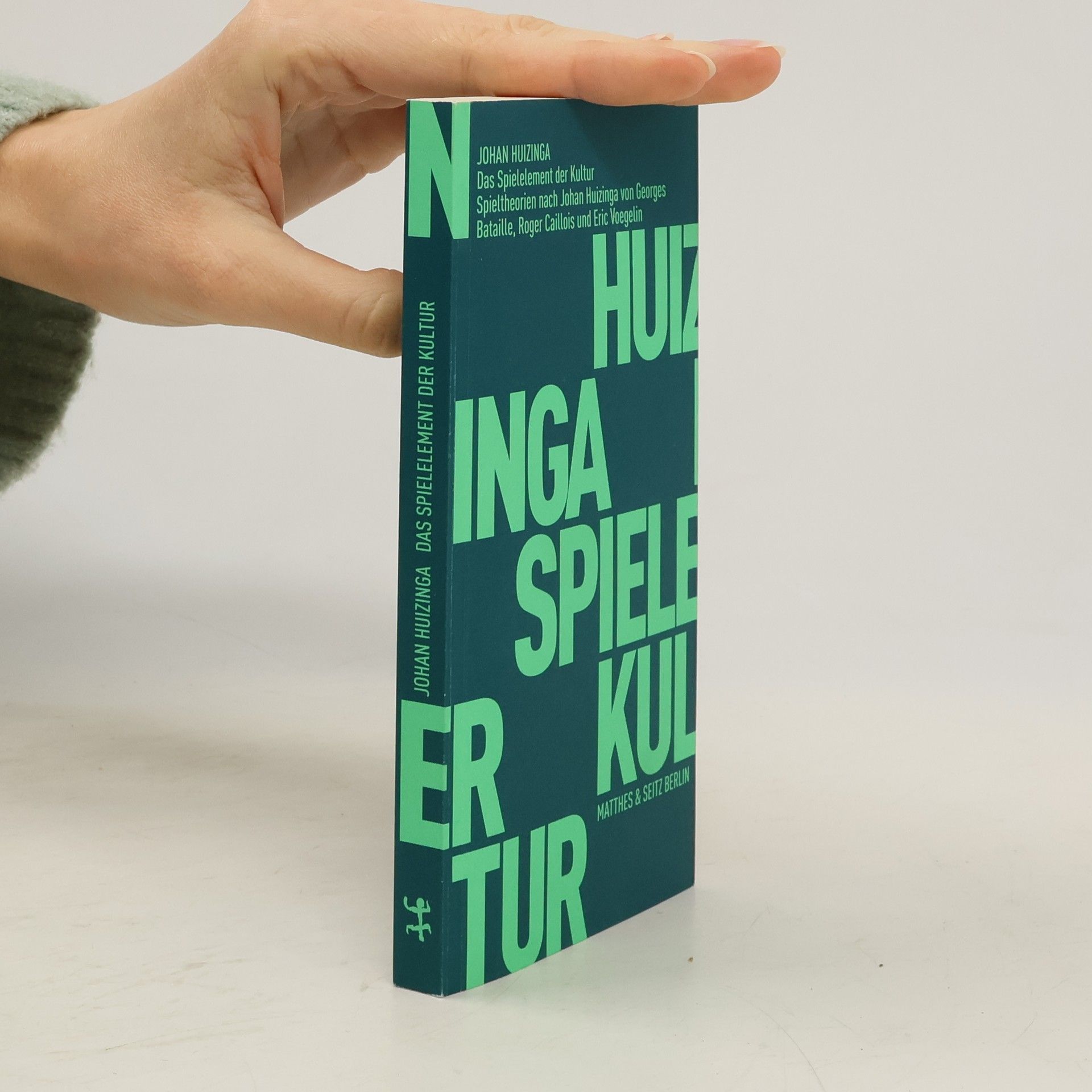
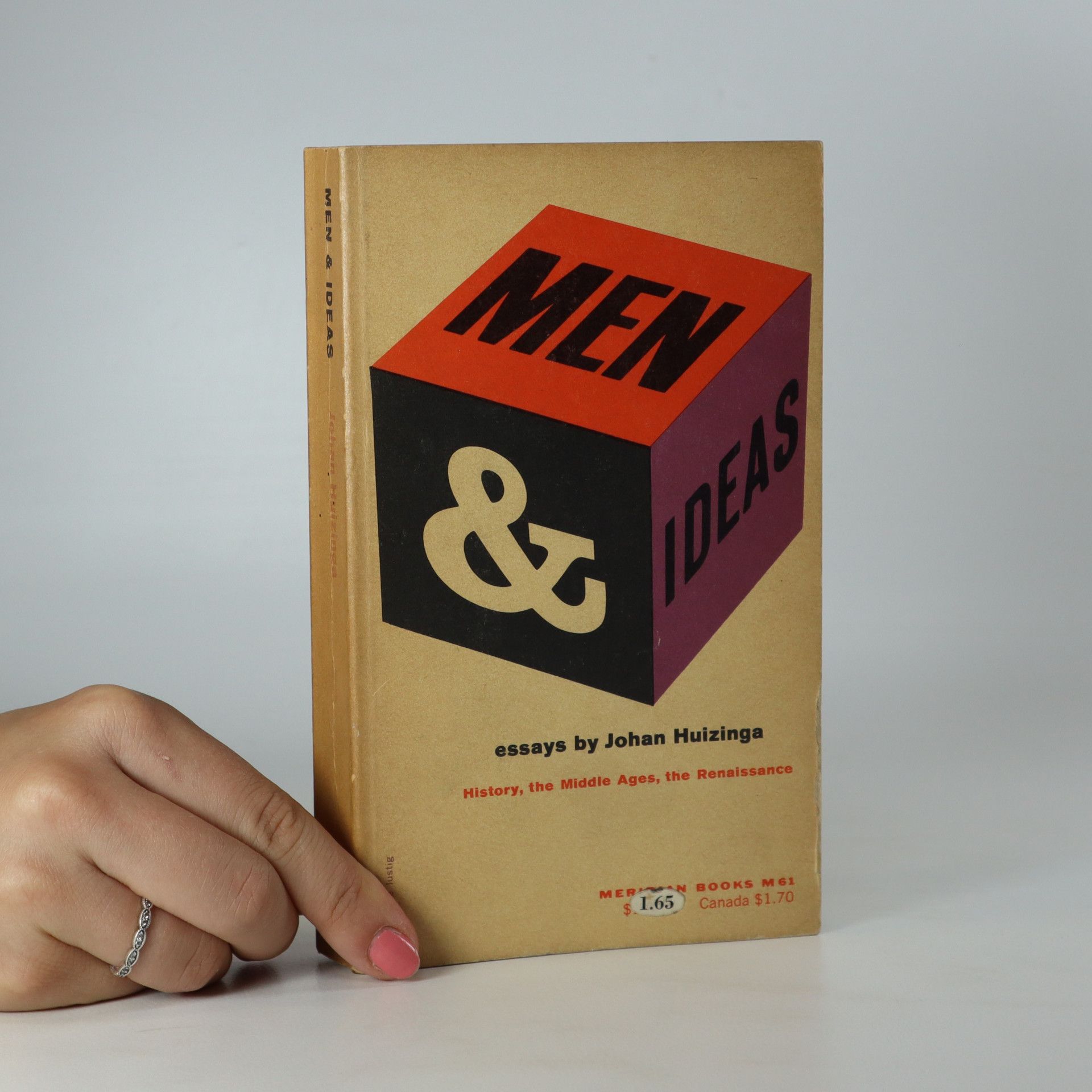

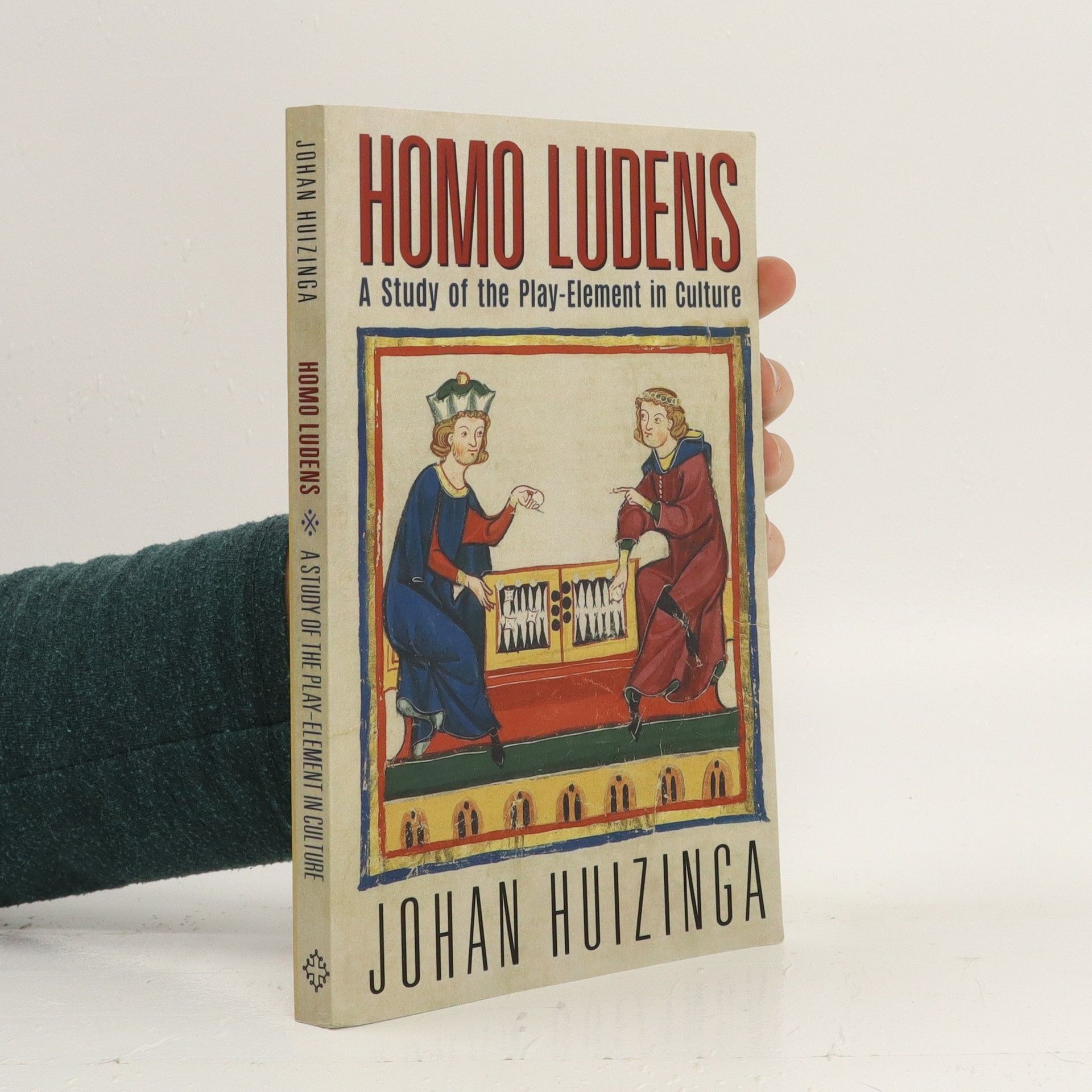

Homo Ludens : A Study of the Play-Element in Culture
- 232bladzijden
- 9 uur lezen
In Homo Ludens, Johan Huizinga defines play as the central activity in flourishing societies. He identifies five characteristics of play: it is free; it is not ordinary or real life; it is distinct from ordinary life both as to locality and duration; it creates order; it is connected with no material interest, and from it no profit can be gained. With cross-cultural examples from the humanities, business, and politics, Huizinga examines play in all its diverse guises as it relates to language, law, war, knowledge, poetry, myth, philosophy, art, and much more. As he writes, Civilization is, in its earliest phases, played. It does not come from play like a baby detaching itself from the womb: it arises in and as play, and never leaves it. Starting with Plato, Huizinga traces the contribution of man the player through the Middle Ages, the Renaissance, and early modern world. With an eye for our own times he writes: In American politics [play] is even more evident. Long before the two-party system had reduced itself to two gigantic teams whose political differences were hardly discernible to an outsider, electioneering in America had developed into a kind of national sport. With its remarkable historical sweep, Homo Ludens defines play for generations to come
In the 16th century, Erasmus was one of the most celebrated figures in Europe - a man of such vast learning that both royalty and universities petitioned for his services. In this very readable biography, a noted scholar traces Erasmus’s youth, his years as an itinerant scholar, sojourns in England, France, Switzerland, and Italy, friendship with Sir Thomas More, and disputes with Martin Luther. The author also probes Erasmus’s mind and character and discusses his writings, including In Praise of Folly and his great translation of the New Testament.
Der Band versammelt vier grundlegende Texte der kulturwissenschaftlichen Spieltheorie des 20. Jahrhunderts, in deren Zentrum Johan Huizingas ›Homo Ludens‹ in einer unpublizierten Vortragsversion steht. Georges Bataille und Roger Caillois radikalisieren ihn zu einer postsurrealistischen Spieltheorie.
Úvahy o příčinách krize evropské společnosti a osudech evropské kultury jsou dnes stejně aktuální jako byly v roce vydání (1935). Tázání se po kořenech antihumanistických ideologií a totalitního amorálního státu neztratilo nic na své naléhavosti. Ani dnes nelze zapomínat na onu tradicí evropského myšlení o podstatných věcech, jejíž přehlížení vedlo nakonec ke katastrofám 20. století. A ani dnes se nelze beztrestně zbavovat jádra kultury. Přeložil Antonín Šimek.
Kultúrnohistorické eseje
- 200bladzijden
- 7 uur lezen
Nizozemský kultúrny historik Johan Huizinga (1872-1945) sa preslávil najmä dvoma knihami, medievistickou prácou Jeseň stredoveku (1919) a kultúrnofilozofickou štúdiou Homo ludens (1938). Okrem toho je však aj autorom mnohých ďalších kníh a esejí z oblasti ranomoderných európskych dejín (napr. Erasmus, Kultúra Nizozemska v 17. storočí), z dejín USA (Človek a dav v Amerike, Amerika ako žije a myslí), z indickej literatúry (Vidušaka) a takisto kritických diel o úpadku modernej západnej civilizácie v 20. storočí (V tieňoch zajtrajška, Zhanobený svet). Vo všetkých týchto dielach sa prejavil nielen ako brilantný mysliteľ, ale aj ako skvelý literát. Súčasný výber jeho esejí približuje túto veľkú osobnosť európskej vzdelanosti prvej polovice minulého storočia ako vnímavého kultúrneho historika, ktorý mal nielen presné predstavy o základoch európskej civilizácie a kultúrnom jestvovaní jednotlivca i spoločnosti, ale aj o poslaní modernej historickej vedy.
Johan Huizingas Kulturgeschichte des Goldenen Zeitalters der Niederlande ist eines der Meisterwerke des berühmten Kulturhistorikers. Mit seinem bekanntesten Buch, Herbst des Mittelalters, teilt dieses knappe Porträt die beeindruckende Weite des Blicks und den literarischen Glanz der Darstellung. Wie konnte es in den Niederlanden des 17. Jahrhunderts zu der Blüte der Kultur kommen, die wir etwa in den Bildern Vermeers oder Rembrandts noch heute bestaunen? Huizinga beleuchtet ihre sozialen, wirtschaftlichen, politischen und militärischen Voraussetzungen und schildert das religiöse Leben des Landes. Vor diesem Hintergrund läßt er ein facettenreiches Bild von Literatur und Kunst der Zeit entstehen. Huizingas charmantes Epochenporträt wird hier nach langer Zeit endlich wieder in deutscher Sprache zugänglich gemacht. Ein neues Nachwort von Bernd Roeck erläutert die bleibende Bedeutung des Werkes.
Amerika
- 328bladzijden
- 12 uur lezen
Dve klasické kultúrnohistorické diela slávneho nizozemského mysliteľa. Slávny nizozemský historik Johan Huizinga (1872-1945), autor dnes už klasických, do mnohých jazykov preložených prác Jeseň stredoveku (1919), Erasmus (1924), Homo ludens (1938), Nizozemská kultúra v 17. storočí (1933/41), V tieňoch zajtrajška (1935) či Zhanobený svet (1945), patrí ku kľúčovým postavám európskeho kultúrnohistorického a antropologického myslenia prvej polovice 20. storočia. Jeho záujem pritom ďaleko presahoval Európu, od mladosti sa totiž zaujímal takisto o Indiu ale aj o Rusko. Ako profesor histórie na univerzite v severonizozemskom Groningene pochopil počas prvej svetovej vojny ako jeden z prvých európskych intelektuálov budúci globálny význam Spojených štátov amerických a pre svojich krajanov napísal o USA originálne a pútavé kultúrnohistorické dielo s názvom Človek a dav v Amerike (1918). O osem rokov neskôr, keď po prvý (a posledný) raz vstúpil na americkú pôdu, napísal o USA svoju druhú, oveľa osobnejšiu knihu s názvom Amerika, ako žije a myslí (1926). Obe autorove diela, ktorých myšlienkovú kvalitu preveril čas, vychádzajú v prvom slovenskom preklade.
